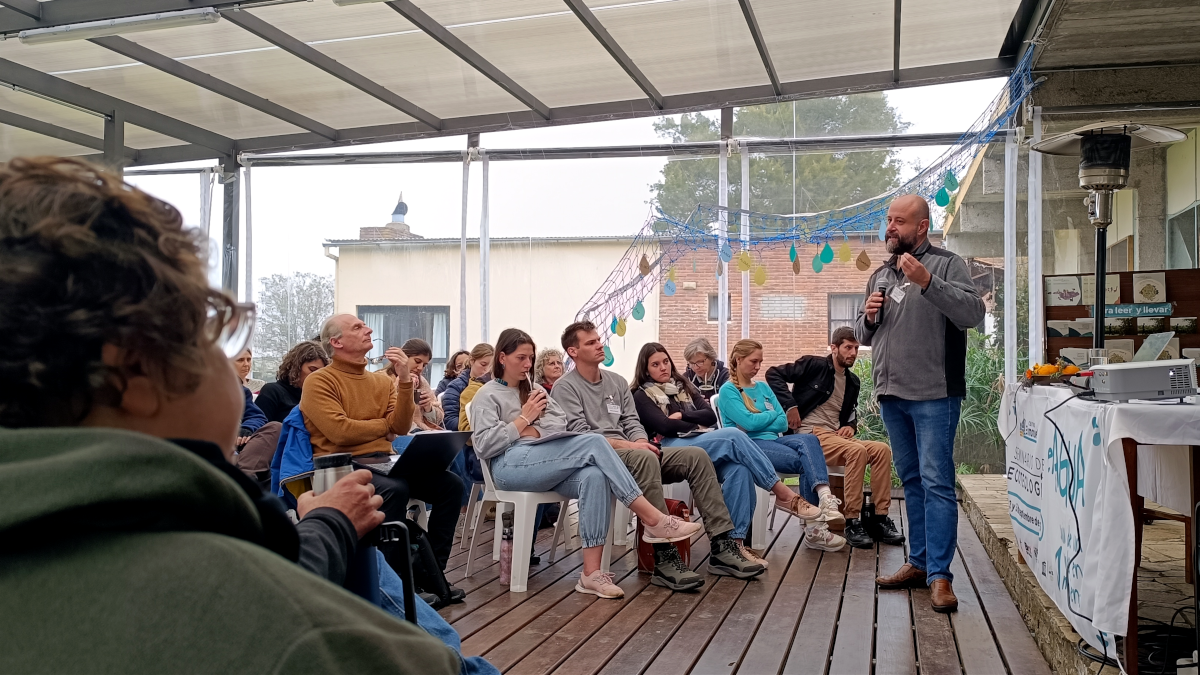Ecotheology
Ecotheology is experienced as a space for encounter and convergence, a multidisciplinary dialogue that allows us to connect spirituality and reflection with our concrete practices. We live Ecotheology as a commitment to Creation and to a regenerated humanity. Hence the invitation to break away from routine, to recreate a new sensitivity, to incorporate the senses into our spirituality.
Part of our activities are planned, managed, and implemented by the Ecotheology Team, a group made up of young people and adults from different disciplines and fields of work, who generously share their time and knowledge. This is where the warmth of a camp leader, the reflective capacity of a social work student, and the experience of someone who grew up in the shade of fruit trees come together. This is where hard science, youth activism, social commitment, literature, teaching, and a passion for the countryside meet, creating a unique rhythm.



Retreats
We offer a space designed from the outset to cultivate a living spirituality, inviting us to think of ourselves as part of biodiversity through evangelical commitment.
Team
Ecotheology Team is a voluntary space for exchange and collective construction to reflect on our commitment to our Common Home.
Training
We are a space for ecumenical construction, a center for hosting seminars and workshops for churches and various social groups. We promote initiatives for the care of creation and action through ecodiakonia.
Resources
We provide the theoretical and practical input from our experience as an ecumenical center for the promotion of a culture of caring for life.
A seminar on water
Events
Coming Soon
Ecotheology Team
Presentation
Retreats
Rooted in a commitment to caring for the earth as an expression of our faith and our shared responsibility.
Since its inception, the Emmanuel Center has sought to cultivate a living spirituality, a way of building community relationships of respect and care between people and the diversity of life, as we understand God teaches us through the Gospel call. Within this framework, we offer various types of retreats.
EcoReflection Retreats invite you to navigate, as a community, the ethical challenges of today related to the care of Creation, the Christian commitment to socio-environmental justice, and the consolidation of community spaces for listening and strengthening exchange. From an open and ecumenical perspective.
If you would like to participate, please contact:
ecoteologia@centroemmanuel.org
WhatsApp: 091 764 797
The Emmanuel Center offers accommodation with daily meals to those seeking a time to disconnect from the hectic pace and personal discovery of the world, with specific, open-ended activities, and the freedom to explore the farm and other green spaces in peace. We also offer the activity booklet Walking in Harmony with Creation · Reflections and Actions of Faith.
If you would like to participate, please contact:
ecoteologia@centroemmanuel.org
WhatsApp: 091 764 797

